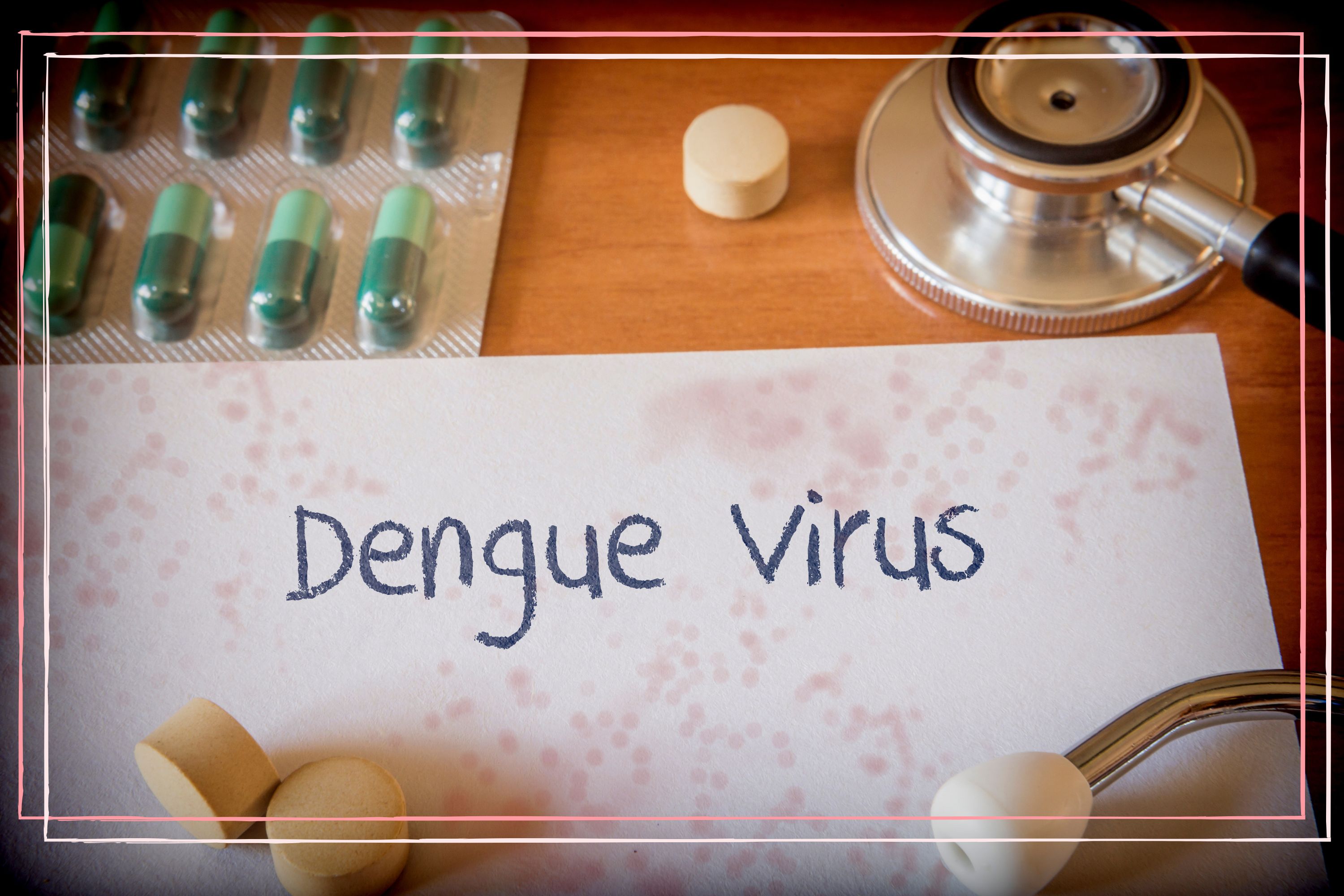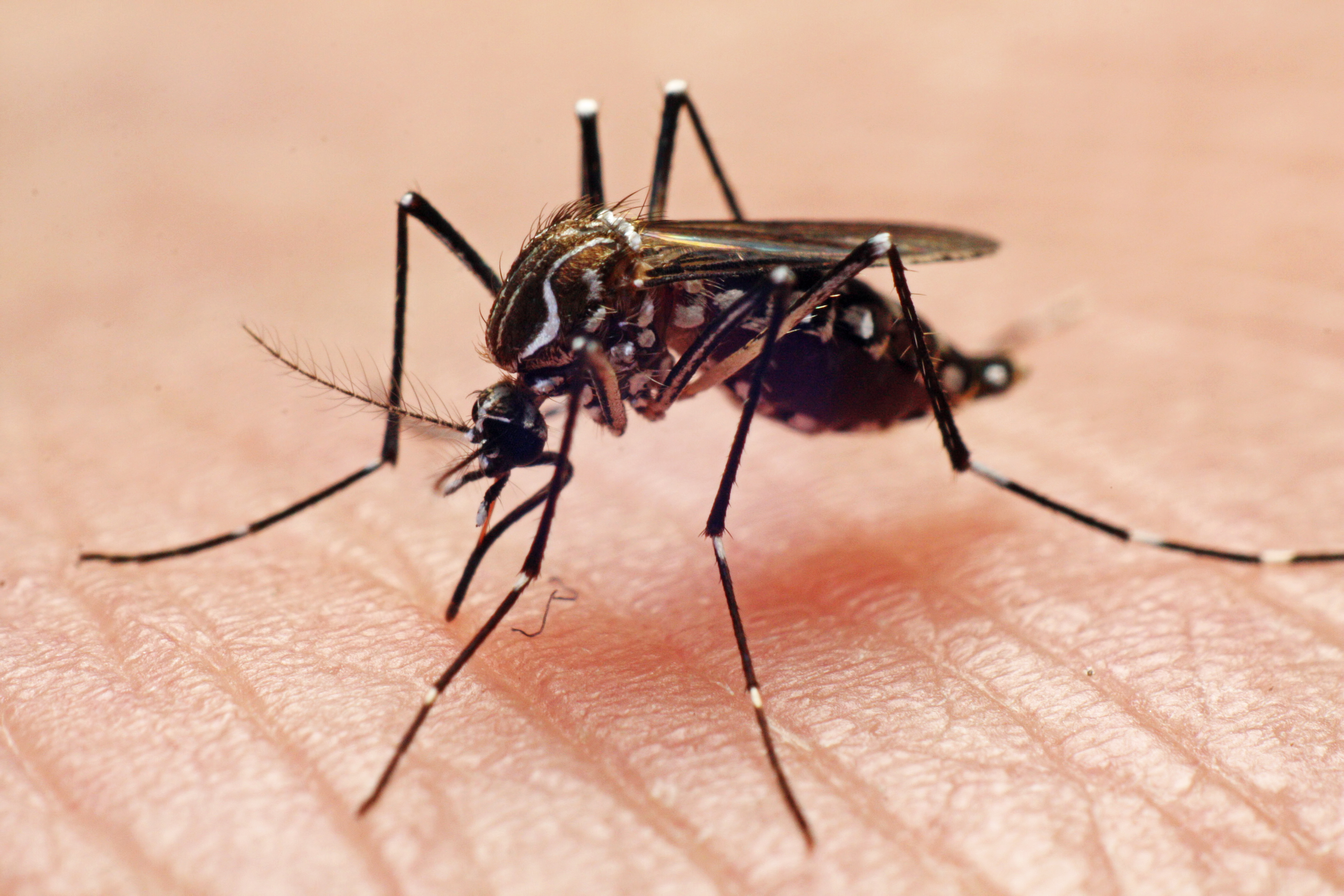What is Dengue fever? As holiday makers warned over increased risk
Health chiefs have issued an alert after reports of cases rising


Parenting advice, hot topics, best buys and family finance tips delivered straight to your inbox.
You are now subscribed
Your newsletter sign-up was successful
With Spring approaching holiday makers looking to book that early getaway are being warned to take extra care after a rise in cases of a particular virus as people ask what is Dengue fever?
Tourists often worry about holiday cancellations but there's a health issue that people need to pay greater attention to.
Health bosses have issued warnings over the risk of Dengue fever after two confirmed cases of the disease were diagnosed in German tourists after a trip to the Spanish island of Ibiza last year during the "incubation period". And a further four cases were recorded with compatible symptoms.
The risks has so far been labelled 'moderate' as we look at all you need to know about the virus...
What is Dengue fever?
Dengue fever is a mosquito-borne illness that typically occurs in tropical and subtropical areas of the world, according to Mayo Clinic. Millions of cases are recorded each year - particularly across southeast Asia, the western Pacific Islands, Latin America and Africa but the disease has been spreading to new areas including Europe and souther parts of US.

What is the cause of Dengue fever?
Dengue fever is caused by being bitten by a mosquito 'Aedes Albopictus' and these are now present throughout the Spanish Mediterranean region and the Balearic Islands alongside some areas inland and north of the country. Researchers are currently still working on a vaccination and while the risk is low across Ibiza, from May to November it's predicted to rise to moderate and local authorities are already taking steps to inform travel makers to be aware.
Health leaders said, "Another meeting is scheduled prior to the start of the activity season of the vector with the Island Council of Ibiza and the five town halls of the island, for the implementation of strict surveillance and vector control plans,"
Parenting advice, hot topics, best buys and family finance tips delivered straight to your inbox.

Can you survive Dengue fever?
Yes, you have a good chance of surviving Dengue fever without any lasting complications, according to Cleveland Clinic but there is a 1 in 20 chance if it worsening to the severe form of the virus. If your symptoms worsen, providing that you are treated immediately at hospital or receive medical treatment you have a greater than 99% chance of recovering.
What are symptoms of Dengue fever?
Dengue fever symptoms vary in person to person - with approximately 40-80% experiencing NO symptoms at all. But those who do have symptoms could easily mistake them for the flu - and they usually start 10 days after a person is bitten by a mosquito.
Health checks have ramped up in recent months, a spokesman explained, "After the knowledge of the cases, the Balearic authorities have planned the pertinent actions of surveillance and vector control and communication and information to the citizenship, to be carried out before the start of the season of vector activity and during the same."
They added, "The risk of new native cases in Ibiza, at this time of low vector activity is considered low, although this risk is considered moderate once the vector activity period begins (May-November)."
Dengue symptoms
- Fever of 104 F (40 C)
- Headache
- Muscle, bone or joint pain
- Nausea
- Vomiting
- Pain behind the eyes
- Swollen glands
- Rash
Some sufferers feel better within a week but symptoms can worsen and if this happens they can potentially become life-threatening, causing severe Dengue - which is also known as dengue hemorrhagic fever or dengue shock syndrome.
The virus can cause damage to blood vessels which makes then damaged and leaky and a when this happens there is a reduction in the number of clot-forming cells [platelets] in your bloodstream. And it's fatal because it can lead to shock, internal bleeding, organ failure and even death.
Our new issue is out 👇🏾👇🏾https://t.co/YnYixLNT4XIncluding articles on #COVID19 #CovidVaccines #SARSCoV2 #Omicron #Mpox #MPX #Vectors #malaria #Dengue #WNV #Zika #Chikungunya #traveling #avianflu #H5N1 #influenza #InfluenzaAviar #PublicHealth pic.twitter.com/bENEpCGBXUFebruary 16, 2023
What are the 3 stages of Dengue fever?
The three stages of Dengue fever are known as;
- Febrile - This is also known as the acute fever stage when temperatures are at the highest of 39-40C and typically lasts two-seven days. Other symptoms present include; aching, abdominal pain, nausea, and vomiting. Severe headache; retro-orbital eye pain; muscle, joint, and bone pain; rash; and minor hemorrhagic signs including petechia - (a small red or purple spot caused by bleeding into the skin), ecchymosis (a discolouration of the skin resulting from bleeding underneath, typically caused by bruising), purpura (a rash of purple spots on the skin caused by internal bleeding from small blood vessels) or a nose bleed, bleeding gums, blood in urine, or a positive tourniquet test result.
- Critical - This phase begins after the fever has subsided and typically lasts 24–48 hours and is at the most dangerous stage as the blood vessels start to leak and blood pressure increases. Fluid can collect in the abdomen, protein levels in the blood lower, and there is an abnormally high concentration of blood in the body.
- Convalescent - a patient's wellbeing improves with the white cell count rising alongside the platelet count. Bumps, spots or blisters or dry, cracked skin, leathery or scaly patches can form.

Selina is a Senior Family Writer for GoodtoKnow and has more than 16 years years of experience. She specialises in royal family news, including the latest activities of Prince George, Charlotte, Louis, Archie and Lilibet. She also covers the latest government, health and charity advice for families. Selina graduated from the University of Sheffield in 2006 with a degree in Journalism, and gained her NCTJ and NCE qualifications. During her career, she’s also written for Woman, Woman's Own, Woman&Home, and Woman's Weekly as well as Heat magazine, Bang Showbiz - and the Scunthorpe Telegraph. When she's not covering family news, you can find her exploring new countryside walking routes, catching up with friends over good food, or making memories (including award-winning scarecrows!)